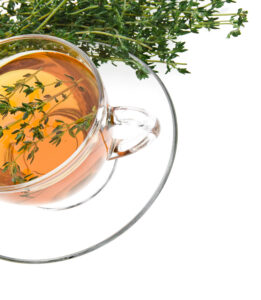Together is delighted to introduce Liz Cassidy, Liz is a registered therapist and sports nutritionist. She offers personalized advice but has agreed to offer our readers some more general advice on how to bolster your immune system.
Many factors can influence your immune system, like exercise, sleep, nutrition and managing stress. We should prepare for the cold season by maximising resilience against infections. In this edition we review some eating and drinking basics and key supplements to support your defences.
“Many factors can influence your immune system”
First things first – it’s all about you!
We’re not advocating narcissism. The tiny deviations in our genetic code can make some people more susceptible to communicable diseases, like the flu, common cold, or stomach bugs. The good news is that with quality rest, exercise and nutrition, avoiding overloads of stress and harmful exposures help you to build a fighting-fit immune system.
An immune system’s work is never done
If your immune system was an industry, it would be up there with energy-intensive sectors like steel and manufacturing. It’s always slaving away, synthesising immune molecules like antibodies, T cells, B cells and a host of components to stave off or destroy invaders. Those can be pathogens like bacteria, viruses or other micro-organisms threatening your wellness. When you get ill, the immune system works harder. So it needs to be fed. Depriving yourself of enough energy is a no-go for recovery.
“The old saying, ‘Feed a cold, starve a fever” is definitely misleading.”
The old saying, “Feed a cold, starve a fever” is definitely misleading. For both, supplying energy and nutrients is essential. Eating raises metabolic activity and body temperature. Both are involved in our immune responses. Sometimes, feeling below par robs you of your appetite for healthy food. However, it’s worth keeping good food in close supply, think of colourful fruit and veg, nuts, seeds and varied plant or animal protein. Those will give you the nutrient density you need. If the daily shop is too much, make sure you have some frozen veg in the freezer. Their nutritional composition doesn’t diverge much from the fresh versions.
Your immune system will thank you for continuing to provide it with the energy and nutrients it needs and you’ll thank yourself for protecting your immune system.
Fuel me up, little darling!
Your immune maintenance is part of your body’s basic housekeeping. For moderate activity, women and men require over 2000 and 2500 calories respectively. We apportion energy according to the challenges we face. In winter, we need more energy to maintain temperature. A fired up immune response is fuel hungry. Don’t struggle through work when you feel unwell, your body needs that energy. You can promise yourself that you’ll be even more productive when you return after a break to recover.
“Your immune maintenance is part of your body’s basic housekeeping”
Our hypothalamus regulates energy balance. It helps the immune system get enough energy to function. Faced with competing demands and low energy availability, it may de-prioritise effective immune function. In effect you are depriving the immune system of what it needs to do its job.
Pump up the fluid volume
Adequate hydration underpins all aspects of health, including our physiological defences. Mild dehydration can increase fatigue and impair your cognition, mood and performance. Fluids supply mucous membranes in airways with plentiful moisture to carry out their work and decrease irritation. Mucous production is crucial to expelling unwanted invaders from our airways.
Eight glasses of water a day is a good rule of thumb, though not a scientific maxim. Try to avoid coffee and alcohol which can dehydrate.
Gimme those vitamins!
Is there a snazzy vitamin to keep illness away? There’s no quick fix. Our immune system is complex. It needs multiple micronutrients working in synergy, like vitamins A, D, C, E, B6, B12, and folate, and minerals zinc, iron, copper and selenium. Let’s focus on the best-studied and evidenced, vitamin D, C and multi-nutrients.
Studies suggest vitamin D can improve resistance to nasal viruses or to bacteria like Streptococcus pneumoniae, behind respiratory disease. On viral or bacterial challenge, vitamin D stimulates our internal antimicrobial machinery and free radical activity, think of them as the first line of artillery against the invaders. Multiple studies also point to anti-inflammatory effects.
We synthesize most of our vitamin D after UV-b exposure. We gain a little from mainly animal products like oily fish, egg yolks, liver or Shiitake mushrooms, but 80% of us are below the recommended intake. Daily spring and summer sunshine, 15 minutes sunscreen-free, should be your go-to. Otherwise, expect low vitamin D status in winter. You might then need a supplement. A daily 400 international units is recommended across many countries. But with your unique genetics at play, get a nutritionist to test you and safely adjust that dose so your level stays optimal.
Go big on vitamin C
Vitamin C is well-studied for antimicrobial properties to fight infection. Scientists noticed it increased T cell activity in older people. These help adaptation to invaders. Antibodies went up too. Other studies suggest vitamin C may help lower pneumonia incidence. These studies used doses of around 500 mg daily, 10-12 times higher than the recommendation.
Opt for 5 to 7 portions of different coloured fruit and veg daily, this is the best way to ensure you get the variety of vitamins and minerals that you need.
A multi-nutrient supplement might help when your system is low.
In short: Keeping your immune responses robust before you are in close contact with colleagues or family will help your resist infections. Prevention is indeed better than cure! So, do everything you can to make sure your system is ready for any ‘nasties’ out there.
If you would like further personalized advice contact Liz Cassidy (MSc, PGDip, DipCNELM). emeraldaspire@outlook.com
Together recommends some drinks to help you boost your immune system.
Taking a tisane in the afternoon? Why not add a sprig of rosemary or thyme and a little organic honey.
Should you get a cold, our rescue drink that delivers immediate results, is a ginger, lemon and honey concoction. Mix half a squeezed lemon, some freshly grated ginger and a tablespoon of honey into a large glass, then add hot water.
Make a hot chocolate and add a half teaspoon of powdered turmeric. Turmeric is a powerful antioxidant – and it will also make your drink taste creamier. Alternatively, adding some grated nutmeg or cinnamon to hot chocolate can also improve your health and give a flavour kick.
When you’re really under the weather you may not feel much like eating. If you haven’t got one, think about buying a juicer. Try carrot (3), apple (2), a stick of celery and a thumbnail of ginger, feel free to add any plant-based protein supplement to add to the nutritional kick. Or juice beets (2), carrot (1), apple (2) and then place in the blender with a handful of chia and pumpkin seeds.







